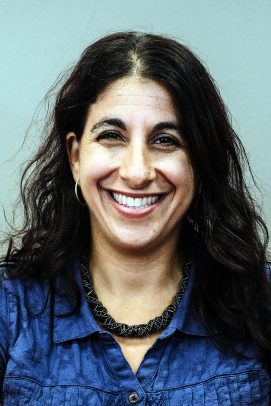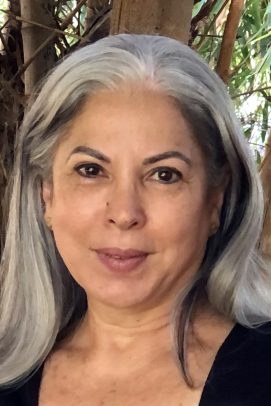Four UIC faculty members earn DPI funding
Four University of Illinois Chicago researchers are the recipients of $500,000 in combined research funding from Discovery Partners Institute, or DPI.
According to DPI, the purpose of the funding is to support the development of multidisciplinary teams into international centers of excellence that will achieve significant economic and societal impact.
Each nascent team is receiving $125,000 as well as administrative and grant-writing support and access to corporate partners and DPI’s downtown Chicago office.
Wastewater-based epidemiology for COVID-19

Led by UIC’s Rachel Poretsky, associate professor of biological sciences at the College of Liberal Arts and Sciences, a team of researchers will develop wastewater public health surveillance methods in the Chicago area and work with public health departments to develop a system for early warnings of outbreaks.
“Wastewater-based epidemiology — which is monitoring potential pathogens in sewers and waterways — is a rapid and cost-effective way to monitor COVID-19 infections in cities,” Poretsky said. “This is currently being pursued in many cities in the U.S. and elsewhere in the world, where researchers have found evidence of when the virus arrived and signs of outbreaks up to a week before clinical cases were documented. Our DPI cluster is plugged into these national and international efforts and has established a team to do this here in Chicago.
“Our immediate work will focus on SARS-CoV-2, but this project is broadly applicable to other infectious diseases such as influenza and future, unknown pathogens, as well as other public health concerns such as opioid use and antibiotic resistance,” Poretsky said.
The team from UIC will include experts from across campus disciplines, including the biological sciences, engineering and public health, and researchers from Northwestern University and Argonne National Laboratory.
Developing new treatments for brain-related illnesses

UIC’s Dr. Jeffrey Loeb, the John S. Garvin Endowed Chair in Neurology and professor and head of neurology and rehabilitation at the College of Medicine, will lead I-BRAIN, an expanded data repository for brain research.
Loeb and his team, which includes researchers from UIC, the University of Illinois at Urbana-Champaign, the University of Chicago, the Illinois Institute of Technology and industry partners, will bring together advanced datasets and experts on human brain disorders.
Their goal is to support the development of new treatments for brain-related illnesses.
“Illinois Brain Analytics, or ‘I-BRAIN,’ will bring together expert scientific clusters that are disease and data-type specific. To date, this approach has led to fundamental discoveries, new intellectual property, and clear commercialization trajectories,” Loeb said. “Under the DPI, I-BRAIN will grow partnerships and a commercial pipeline to generate a cutting-edge workforce in Illinois.”
“In conjunction with our NIH-supported CCTS program, we are expanding an extensive, multidimensional data repository that links health records to highly curated multimodal and multidimensional datasets as well as spatially linked human brain tissues housed at UIC’s NeuroRepository,” he said.
Artificial intelligence to improve COVID and other disease outcomes

Dr. Karl Kochendorfer, assistant vice chancellor for health affairs and chief health information officer at UIC and associate professor of clinical family medicine at College of Medicine, will co-lead the CREATE WISDOM initiative, which will use data from regional health systems to develop artificial intelligence technologies to improve patient outcomes, starting with COVID among underserved populations, but quickly expanding to other conditions and disease states. Ravishankar Iyer, from the UIUC Grainger College of Engineering, will co-lead the project.
Working with Kochendorfer and Iyer are researchers from UIC, UIUC, Rush University Medical Center, Mayo Clinic, Northwestern University, OSF Healthcare, Carle Foundation and DuPage Medical Group.
“We have assembled a phenomenal team of engineers from UIUC and UIC and will pair them with clinicians and informaticists from UI Health and other great institutions across the Midwest, including Rush, Mayo, Northwestern, OSF, Carle and the DuPage Medical Group to transform healthcare,” Kochendorfer said.
“Working in collaboration with our industry partners, we will apply novel AI methods to very diverse patient populations around COVID,” he said. “Then we will translate this effort to other diseases and conditions like cancer and we will make sure that we focus on the disparities of our more vulnerable patient populations, such as those who are homeless, older members of minority communities or those who are engaged in the criminal justice system.”
Privacy in the era of big data

UIC’s Lenore Zuck, research professor of computer science at the College of Engineering, will lead a team of researchers to create a platform that will enforce strict privacy policies in sectors such as health care, and develop tools and methods for making the best tradeoffs between privacy and utility.
“The idea of allowing data privacy to be dynamic — strict in ‘normal’ times and but adaptable and accountable under specific extenuating circumstances — is novel,” Zuck said. “COVID-19 has shown us that privacy, particularly with respect to contact tracing and electronic health records, is of vital importance. We are actively working on solutions that will protect individuals’ privacy while providing a path for disclosures during an emergency.”
“In true emergencies, we want a system for disclosing information to authorized entities, and we want accountability standards around who is provided access, why information is accessed, and how the information, once accessed, is used,” she said.
Zuck’s team will include experts from UIC, UIUC, the University of Chicago and the University of Pittsburgh.
More than 55 teams applied for the funding. Teams had to be led by a faculty member from the University of Illinois System and include scientists from at least one other partner university, including Argonne National Laboratory, Hebrew University, Illinois Institute of Technology, Northwestern University, University of Chicago and Tel Aviv University.
An additional four teams will be led by faculty members at UIUC.
“This is just the beginning of our efforts to put already strong industries in the region on the very cutting edge,” said Bill Jackson, DPI’s executive director. “And we’re doing so by leveraging the most ambitious talent the region has to offer and enticing them to team up, rather than operate in silos. Such teamwork is going to generate exactly what this region and state needs: More federal R&D funding and more jobs.”
“These initial seed grants will build DPI’s first group of science teams that we will help position for success in the form of further R&D funding, the creation of new companies and jobs, and societal and economic impact,” said DPI’s Interim Director of Research Venkat Venkatakrishnan.
